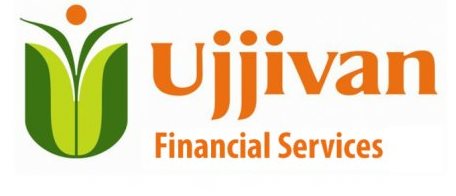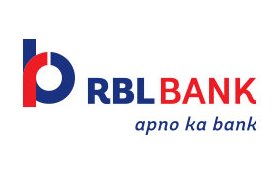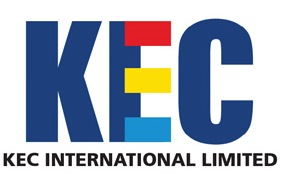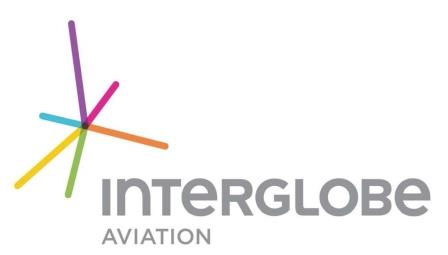

Ujjivan Financial Services Limited serves over 37.1 lakh active customers through 464 branches and 11,242 employees spread across 209 districts and 24 states in India. Its Gross Loan Book stands at ₹7,560 crore and it has over 187 full-service banking outlets with a deposit base of ₹3,772 crore as of March 31, 2018.
Total Income was ₹461 crore in Q4FY18, an increase of 20% over Q3FY18 and an increase of 36% over Q4FY17. Net Interest Income grew by a strong 64% on the back of 18% growth in advances YoY. PAT was at Rs.65 crore against 19 crore in Q4FY17 which grew by 235% YoY mainly on account of reduction in cost of funds. Net Interest Margin is higher at 11.6% in Q4FY18 as compared to 8.6% in Q4FY17 which is primarily due to reduction in finance cost attained through mobilizing low cost deposits. NIM has improved by strong 300bps to 140bps mainly resulting from improvement in cost of funds. The total cost of funds have reduced to 9% as on Q4FY18 from 10.4% in Q4FY17. We expect 13% CAGR in NII and 25% CAGR in loan book over FY18-20E.
GNPA improved to 3.6% and NNPA to 0.7% in Q4FY18 against 4.2% and 1.0% respectively in Q3FY18 which is indicating continuous improvement in asset quality. The new business has been maintaining a collection efficiency of 99.7% since January 2017 which would help to reduce fresh slippages going forward. Provision Coverage Ratio is at 81.5% and Cost to Income ratio at 57.0% in Q4FY18, a decrease from 69.0% in Q3FY18 and a decrease from 76.7% in Q4FY17. ROA at 2.8% and ROE at 15.0% for Q4FY18 against 1.3% and 7.0% respectively for Q3FY18.
Advances and deposits grew by 18.5%/55% YoY in Q4FY18. Contribution of deposits increased from 35% in Q3FY18 to 49% in Q4FY18 towards the total fund and resulted in reduction of borrowing costs. Loan disbursements grew by strong 61% YoY with fresh disbursement growing by 33% YoY led by strong growth in Micro and Small Enterprises (grew by 300%), Housing Finance (grew by 226%) and Group loan (grew by 17%). 7.6 lakh new borrowers added during this fiscal year and 2.2 lakh new borrowers in Q4FY18. Out of 464 branches, 187 branches are converted into full-fledged bank branches (added 66 branches in Q4FY18) which would help to mobilise low cost deposits going forward. Long-term outlook remain positive on the back of strong earnings coupled with healthy loan growth. We value at 2.7x FY20 Adj. BV and recommend BUY rating with a revised target price of Rs.470.
Analyst: Sreenish S R, Geojit Financial Services Ltd., INH200000345
For Disclosures and Disclaimers: Ujjivan Financial Services Ltd: https://goo.gl/nXYEB9


RBL Bank Limited has emerged as one of the fastest growing private sector banks with a network of 265 branches and 388 ATMs.
RBL witnessed strong traction in its loan book as it grew by 37% YoY, fuelled by 42% YoY growth in nonwholesale book and 33% YoY rise in wholesale portfolio. Nonwholesale loan book was mainly driven by strong 66% YoY growth in retail assets and MFI & MSME segment (38% YoY), partially offset by decline (-8% YoY) in Agri portfolio. As a result, the share of retail loans increased by 162 bps YoY to ~41% of total loans. On liabilities front, deposits grew by healthy pace of 27 YoY mainly driven by CASA growth of 41% YoY. Thus, CASA ratio improved by 242 bps YoY to 24.4%. Going forward, we expect advances to grow at a CAGR of 35% over FY18-20E led by robust growth in the retail advances.
Net interest income (NII) increased by 42% YoY (in line with expectation) on the back of strong growth in loan book and 38 bps YoY expansion in net interest margin (NIM) to 3.8%. Increase in NIM was supported by robust growth in low cost current account deposits (43% YoY). We expect NIM to remain stable at current level over FY18-20E. Non-interest income increased by 32% YoY mainly driven by core fee income (85% of total other income). Pre-provisioning profit and net profit increased by 36% and 37% YoY, respectively. Going forward, we expect net profit to increase at a CAGR of 34% over FY18-20E led by improving operating efficiency coupled with a stable margin.
RBL bank’s asset quality remained well under control and improved sequentially on the back of controlled slippages coupled with higher upgrades. Hence, Gross/Net NPA ratios declined by 16/19 bps QoQ to 1.4%/0.8%. Total stressed assets (including GNPAs) declined by 26 bps QoQ to 1.5% of the total loan book. Notably, the bank has little exposure to large NPA accounts including the IBC/NCLT cases, etc. We expect asset quality to continue to show broadly stable trend (Gross/Net NPA ratios of 1.5%/0.6% by FY20E) given the bank’s strong risk management practices and an improving macro environment.
RBL has continued to witness strong business momentum, and we expect this traction to continue for the next few years. We project business to grow at a CAGR of 32% over FY18- 20E with gradual rise in profitability at RBL Bank (14.4% of RoE and 1.3% of RoA by FY20E). Besides, the bank is well capitalized with CAR of 15.3% and Tier I ratio of 13.6%. Thus, we don’t expect any further capital dilution for the next two years Overall, higher earnings growth, highly capable management, steady asset quality, improving business mix and above industry average loan growth will help the bank to sustain premium valuations over new generation private sector banks. Hence, we continue to maintain our Accumulate rating on the stock with a target price of Rs 591.
Analyst: Kaushal Patel, Dion Global Solutions Ltd., INH100002771
For Disclosures and Disclaimers: RBL Bank: https://bit.ly/2II5AlR


KEC International Limited is a global infrastructure Engineering Procurement and Construction (EPC) major. It has presence in the verticals of power transmission and distribution, cables, railways, and water and renewable. The Company has powered infrastructure development in 63 countries across Africa, Americas, Middle East, Central Asia, South Asia and South East Asia.
KEC achieved significant landmark, their revenue has crossed 10,000cr and EBITDA has crossed 1,000cr for the first time. The overall growth in revenue for the year has grown by 17% with an EBITDA margin of 10% compared to 9.3% last year. PBT and PAT have shown significant improvement on both growth and margin parameters on the back of reduced interest cost to revenue, lower depreciation and lower tax rate. PBT at 690 cr has gone up by 49% at a margin of 6.8% whereas PAT stands at 460 cr with a growth of 51% and a margin of 4.6%.
Q4FY18 revenue grew by ~29% YoY to Rs 3,664crore (in line with estimate) led by superior execution in T&D business (21%YoY), railway (74% YoY) and civil (350% YoY). However, revenue from cable business declined due to shifting of Silvassa operations to Vadodara. Strong order inflow from T&D and higher spending in railway and solar business will continue to support execution. We expect top line to grow at a CAGR of 17% over FY18-20E.
Despite, strong execution KEC’s gross margin declined by 691bps YoY to 23.8% which is a 13 quarter low due to higher raw material cost (24% YoY) and increased subcontracting (37% YoY) dent margins. However, drop in other expenses by 27% YoY limited EBITDA margin to decline only by 47bps YoY to 10.1%. Further, significant decrease in depreciation by 33% and increase in other income lifted earnings growth by 35% YoY to Rs196crore. We increased FY19E/20E PAT estimate by 2%/5% respectively owing to healthy execution.
FY18 order book grew by 37% YoY to Rs17,298crore (~2x FY18 revenue) supported by 22% YoY growth in new orders. However, Q4FY18 order inflow growth was muted at 2% YoY to Rs 3,798 crore. Lower order intake from SAE business and T&D segment impacted the growth. Further, KEC holds strong L1 orders of Rs1,500crore and is expected to convert into the order book in the coming quarters. Railway segment continued to generate strong order inflow which grew by 121% YoY to Rs 988crore, constituting 26% of total order inflow. We expect KECs order book to grow at a CAGR of 33% over FY18-20E.
Execution is back on track, and the margin is expected to stabilize on account of cost control measures. Further, railway electrification orders will pick up, and revenue from the railway is expected to double in FY19. Strong order book and healthy outlook in T&D and railway segment will drive the earnings growth. We factor adj. PAT to grow at CAGR of 22% over FY18-20E. We value KEC at a P/E of 16x on FY20E EPS and maintain our ‘Accumulate’ rating on the stock with a target price of Rs426.
Analyst: AntuEapen Thomas, Geojit Financial Services Ltd., INH200000345
For Disclosures and Disclaimers: KEC International: https://goo.gl/w44S83


InterGlobal Aviation Limited (Indigo) is one of the most efficient low-cost carriers (LCC) with a market share of 40% in the Indian aviation sector, and a current fleet strength of 159 aircrafts. India being one of the fastest-growing air travel market globally- with strong economic growth, expansion of middle class, tourism, rail travel substitution, improvement in aviation infrastructure and favourable regulatory environment, the future of low cost carriers like Indigo looks promising. The role played by these low-cost carrier (LCCs) to make air travel affordable through robust fleet addition is a key factor in the strong growth of the Indian aviation sector, whereby further expanding the market presence and firming up regional connectivity.
Indigo is best positioned to benefit from this structural growth with its cost and market leadership, aggressive fleet expansion, continued focus on high-density routes and improving aircraft utilization. Their strategy of bulk aircraft ordering has led to lower acquisition and maintenance cost, while single format aircrafts boosted operationally efficiency. Given large size of aircraft orders (430 A320neos aircrafts), Indigo was able to negotiate favourable prices for these aircrafts which has helped the company in reducing the overall costs associated with the acquisition, maintenance and operation of aircrafts. Further, Indigo has signed term sheet with French airframe ATR for 50 ATR 72-600 aircraft to cater to smaller cities to expand their market presence.
In the last quarter (Q4FY18), their revenue grew by 20% YoY, led by strong passenger growth (26% YoY). The ASK (Average seat kilometre) witnessed a robust growth of 21% YoY (in Q4), despite the recent engine issues. However, they witnessed a decrease in margins which was due to a sharp decline in yield by 6% YoY primarily attributed to inability in passing through of higher fuel cost (ATF). Weakness in yields was due to low ticket price in first 0-15 day period during the quarter owing to high competition. However, management has indicated that yields have started to inch up recently. As engine issues also stand resolved; aggressive capacity addition and cost rationalisation will help Indigo in maintaining its competitive advantage. Their young fleet (~5 years & 15% more fuel efficient models), has helped the company in maintaining profitability even when the crude prices were above USD100/barrels. Going forward we believe that given the higher ATF prices, the scope for extension of price competition is limited, and pass through of higher fuel cost will lead to improvement in margins.
We factor ASK to grow by 22% for FY19E and revenue to grow by 24% CAGR over FY18-FY20E. Considering Indigo’s fuel efficient fleets, market leadership position, aggressive capacity addition and healthy balance sheet, we continue to maintain our positive view on the stock. We expect earnings to grow by 20% CAGR over FY18-20E and value it at a P/E multiple of 17x on FY20E EPS, with target price of Rs1,438 and recommends BUY.
Analyst: Anil R, Geojit Financial Services Ltd., INH200000345
For Disclosures and Disclaimers: Indigo: https://goo.gl/KJMV6N










